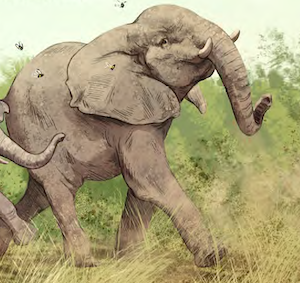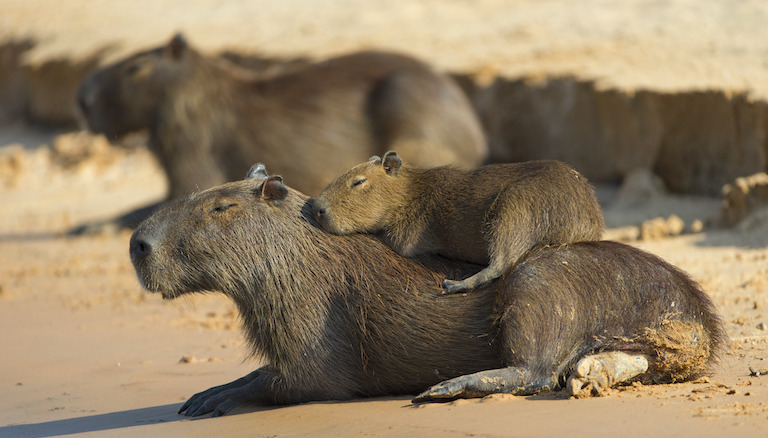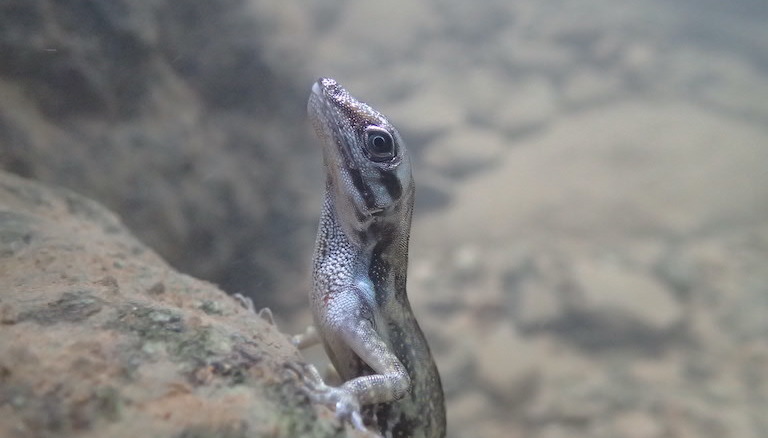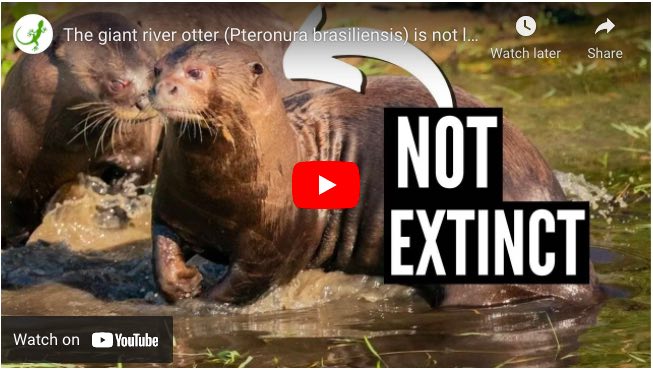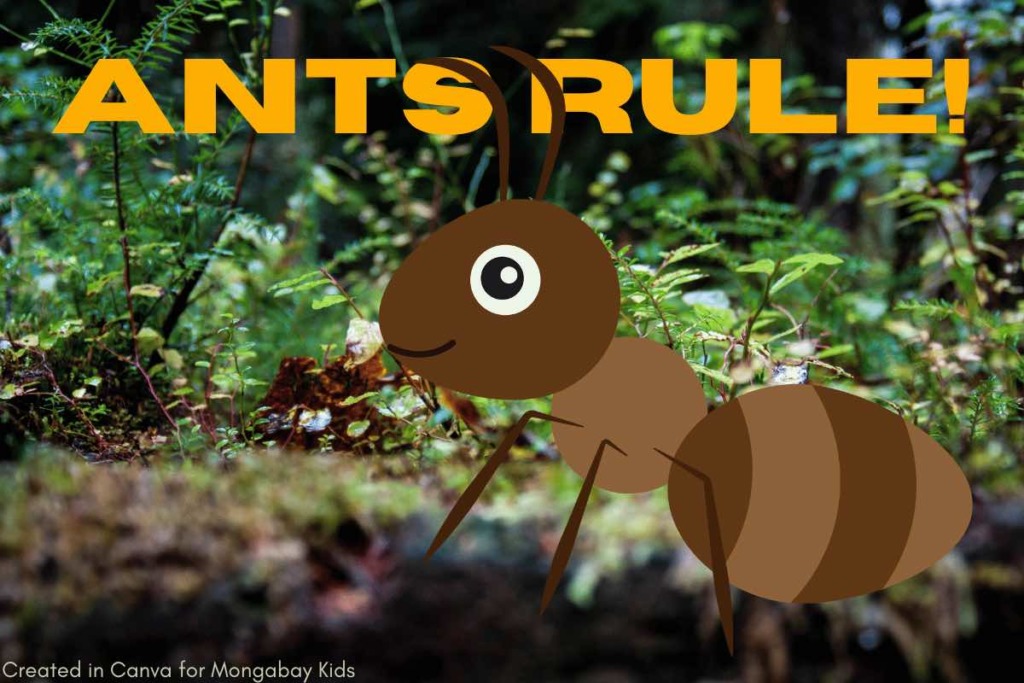
How many ants are there on Earth? Quadrillions, it seems.
As of November 2022 there are 8 billion humans on Earth.
Now imagine that every human on Earth had 2.5 million ants with them. Where would you put 2.5 million ants? You would have ants all over your kitchen, all over your clothes, all over your devices, all over EVERYTHING!

2.5 million ants for every human adds up to 20 QUADRILLION ANTS! That is at least how many ants that scientists think live on Earth.
This is what 20 quadrillion looks like when you write it out: 20,000,000,000,000,000. This is a pretty big number.
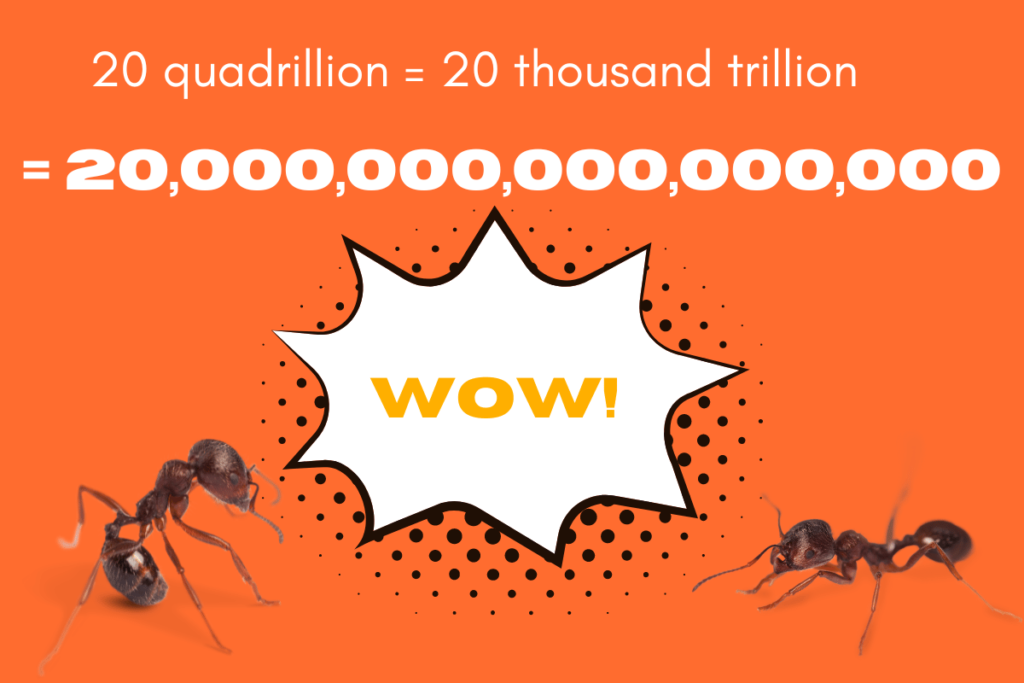
How did scientists figure out how many ants there are on Earth?
Sabine Nooten at the University of Würzburg in Germany and her team read through 20,000 scientific studies and reports about ants. From these studies they found 489 studies with reliable estimates of ant numbers in different parts of the world. An estimate is an approximation based on measurements or other data.
By putting together all the estimates of ant numbers, the science team were able to make an educated guess about how many ants there are in the world. All together the science team’s calculations suggest that there are at least 20 quadrillion ants on our planet.
How do we even imagine what 20 quadrillion ants look like? This is enough ants to create a single chain of ants that wraps around Earth’s equator nearly 8 million times.
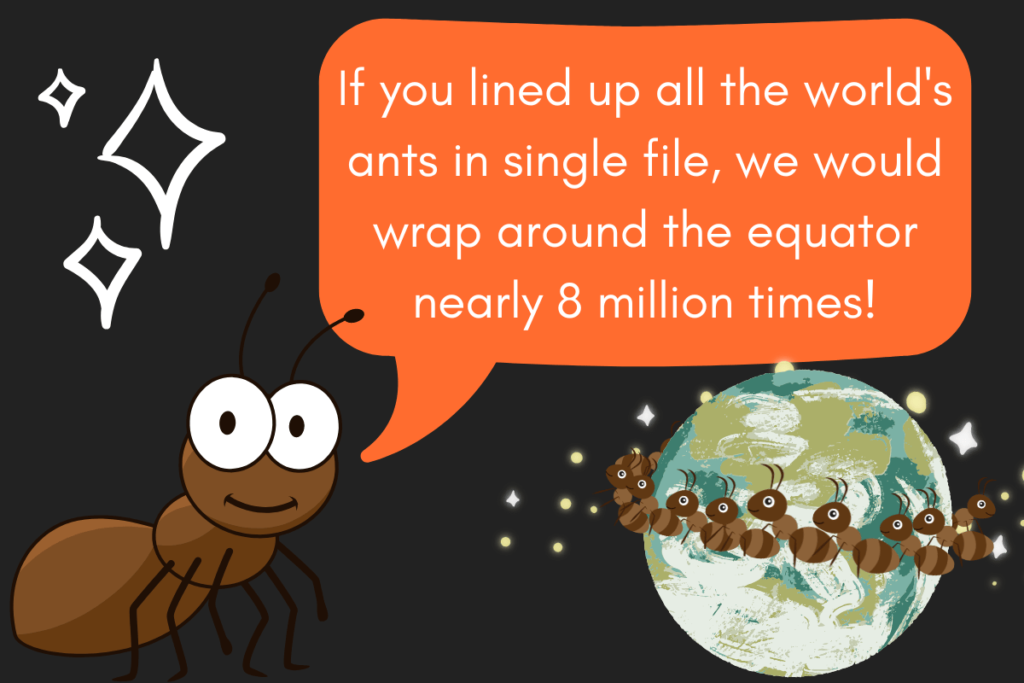
Why are all these ants important?
There are at least 12,000 species of ants, with new species discovered regularly. All of these ants have a biomass of at least 12 metric megatons of dry carbon. Biomass is the weight of living tissue of organisms. Ants have more biomass than all of the wild mammals and birds on Earth.
YUCK! you may think. “Why should we care about ants?” While it is true that having ants in our kitchens is not fun, ants are actually really important animals in the world. Some important things ants do:
- Ants aerate soil, meaning that they help bring oxygen into it that plants and soil microorganisms need to grow.
- Ants are the foundation of the food chain for many animals.
- Ants help disperse seeds, which is important for the growth of plants.
- Ants help decompose (break up) organic materials like leaves or dead animals.
Ants are actually some of the most valuable players in ecosystems around the world.

Have scientists tallied up all the ants on Earth?
No, not yet. It is likely the Earth’s ant count will grow. Ants are not well studied in all parts of the world. And the science team’s tally is missing some important information – such as the number of ants living underground. There could be ANOTHER 20 quadrillion ants that weren’t included in the current estimate…
What are you going to do with another 2.5 million ants?!

Adapted from a story published on Mongabay.com:
Citation:
Schultheiss, P., Nooten, S.S., Wang, R., Wong, M.K.L., Brassard, F., Guénard, B. (2022). The abundance, biomass, and distribution of ants on Earth. Proceedings of the National Academy of Sciences, 119 (40) e2201550119. https://doi.org/10.1073/pnas.2201550119.

